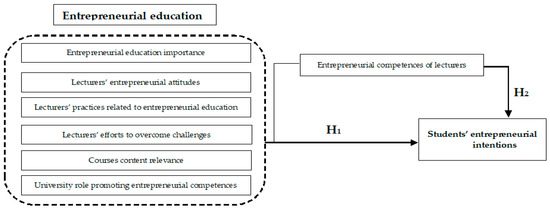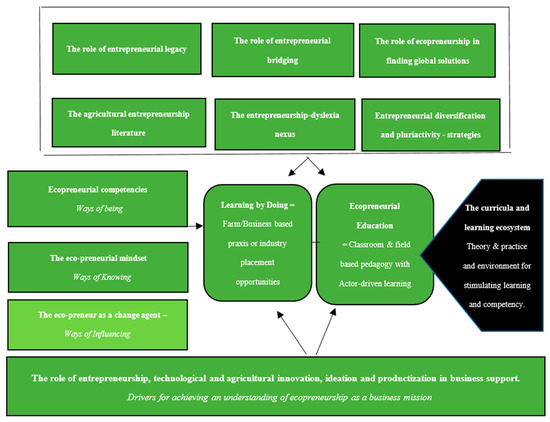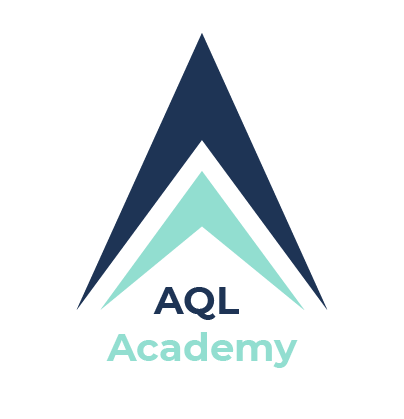
Overview of Oman's Online Education Sector
Growth of Online Education in Oman
In recent years, Oman has witnessed a remarkable growth in its online education sector, fueled by a surge in demand for flexible and accessible learning solutions. Traditional education models are undergoing significant transformations as both students and educators embrace the benefits of technology. The COVID-19 pandemic acted as a catalyst, accelerating the shift to online platforms. Many Omani students shared experiences of adapting to this digital learning environment. For instance, one student noted how online tools provided them with opportunities to engage with international educators and peers, enriching their learning experience beyond the classroom. Some contributing factors to the growth of online education in Oman include:
- Government Support: The Omani government has introduced initiatives and investments aimed at enhancing digital literacy and expanding e-learning resources.
- Rising Internet Penetration: Increased internet access across the country has made it easier for students to connect with online educational services.
- Diverse Offerings: A wide variety of courses spanning academic subjects to vocational training and professional development is now available, catering to different interests and learning styles.
Current Landscape and Market Trends
As the online education landscape in Oman continues to evolve, several market trends have emerged.
- Increased Collaboration with Institutions: Educational institutions are forming partnerships with tech companies to develop and implement robust online learning platforms.
- Shift Towards Lifelong Learning: Adults seeking career advancement or skill enhancement are increasingly enrolling in online courses, paving the way for a culture of continuous education.
- Variety of Learning Modes: Blended learning models that combine both virtual and traditional classroom experiences are gaining traction. This approach allows for more personalized learning.
- Focus on Quality Content: There's a growing emphasis on the development of high-quality, engaging content that meets the needs of diverse learners, ensuring that students gain relevant knowledge and skills.
These trends signify a dynamic shift in the educational landscape, where technology plays a pivotal role in shaping the future of learning in Oman. As opportunities continue to arise, the potential for growth in the online education sector seems limitless.

Opportunities for Entrepreneurs in Online Education
Identifying Gaps and Demands in the Market
With the ongoing evolution of Oman's online education sector, there are significant opportunities for entrepreneurs eager to make their mark. One of the first steps to success is identifying gaps and unmet demands in the market. For instance, while several platforms offer conventional subjects like math and science, there remains a noticeable demand for specialized and vocational training courses. Entrepreneurs can focus on these areas, creating programs that cater to industry needs. Consider these key areas ripe for exploration:
- Technical Skills Training: With the rapid growth in technology fields, courses focusing on coding, data analysis, and digital marketing are in high demand.
- Language Learning: There’s a robust market for platforms offering foreign language courses, particularly in English, Spanish, and Mandarin.
- Soft Skills Development: Courses focusing on communication, leadership, and negotiation skills can meet the growing needs of professionals seeking career growth.
A local entrepreneur successfully filled this gap by launching an online platform dedicated to teaching soft skills through interactive modules. This venture not only catered to individuals but also offered corporate packages to companies looking to upskill their workforce.
Leveraging Technology for Educational Innovation
In today’s tech-driven world, leveraging technology has become essential for educational entrepreneurs. Innovative technological solutions can enhance the learning experience and provide substantial value to users. Here are some ways entrepreneurs can harness technology in their offerings:
- Learning Management Systems (LMS): Creating an LMS can streamline course management, student tracking, and resource sharing, improving the overall educational experience.
- Gamification: Incorporating game-like elements into courses can boost engagement and retention rates. Completing modules as "levels" or earning rewards can motivate learners.
- Artificial Intelligence (AI): Implementing AI-driven personalized learning paths can tailor the educational journey based on each student's strengths and weaknesses.
An inspiring example is a startup that used AI to provide personalized feedback on students' assignments. This innovation not only improved learning outcomes but also attracted a wider audience. By identifying market needs and integrating technology effectively, entrepreneurs can position themselves strategically within Oman's thriving online education landscape. The potential for creative, impactful solutions is truly vast, inviting a new wave of educational startups.

Challenges Faced by Entrepreneurs
Regulatory Hurdles and Compliance Issues
As the online education sector expands in Oman, entrepreneurs face significant regulatory hurdles and compliance issues. Navigating the legal landscape can be daunting, and those looking to establish online education platforms must ensure they adhere to regulations set forth by the Ministry of Higher Education and other governing bodies. One local entrepreneur shared her experiences, highlighting how her initial enthusiasm was dampened by the complex web of compliance requirements. Key challenges include:
- Licensing: Entrepreneurs often need to secure licenses for their programs, especially if they plan to offer accredited certificates.
- Data Privacy Regulations: With increasing concerns about student data security, understanding how to safeguard personal information is crucial.
- Quality Assurance Standards: Meeting national and international quality assurance benchmarks can be resource-intensive and require continuous monitoring.
To overcome these hurdles, it's vital for new entrants to stay informed and work closely with legal advisors familiar with Omani law. Collaboration with established institutions can also provide guidance and support in navigating these regulatory waters.
Competition and Differentiation Strategies
The online education space in Oman is becoming increasingly crowded, presenting another challenge for new ventures. As more players enter the market, entrepreneurs must find effective differentiation strategies to stand out. To carve a niche, consider the following approaches:
- Unique Value Proposition: Define what sets your offerings apart. Is it a specialized curriculum? Exceptional instructors? Highlighting these aspects can attract your target audience.
- User Experience: Creating an engaging and user-friendly platform can be the differentiator that persuades students to choose your service over others. An entrepreneur who recently launched an interactive e-learning platform emphasized the importance of smooth navigation and comprehensive support resources for students.
- Community Building: Fostering a sense of community among learners through discussion forums, group projects, and networking opportunities can enhance the appeal and promote loyalty.
Devising strong competitive strategies can be a game-changer in this competitive landscape. By staying attuned to market trends and adjusting to meet the needs of learners, entrepreneurs can build thriving online education businesses, even amidst challenges. A proactive approach and innovative mindset will pave the way to success in Oman's dynamic online education sector.

Success Stories in Oman's Online Education Sector
Case Studies of Successful Online Education Ventures
As Oman’s online education landscape matures, several success stories have emerged that inspire budding entrepreneurs and showcase the potential of digital learning. One noteworthy example is "LearnOman", a platform dedicated to both academic subjects and vocational training tailored specifically for Omani students. LearnOman began as a modest initiative but quickly scaled due to its unique approach. Here’s what contributed to its success:
- Localized Content: By developing curricula relevant to Omani culture and workforce needs, LearnOman created a strong connection with local students.
- Partnerships with Recognized Institutions: Collaborating with well-known universities provided credibility and attracted a larger student base.
- Accessible Pricing: Offering competitively priced courses made education more accessible, benefiting a wider demographic.
Another inspiring case is "SkillUp", an online platform focusing on professional development and soft skills training. Its breakout success stemmed from offering micro-certifications that cater to professionals looking to enhance their resumes without committing to full degrees.
Lessons Learned from Established Players
From these success stories, several key lessons emerge for aspiring entrepreneurs looking to enter the online education arena in Oman:
- Know Your Audience: Understanding your target market's specific needs and preferences is crucial. Conducting surveys or focus groups can provide valuable insights that shape your offerings.
- Quality Over Quantity: Focusing on delivering high-quality content and user experience is essential, rather than trying to offer every possible course. As noted by an established entrepreneur, consistent updates and improvements kept their platform relevant and engaging.
- Embrace Feedback: Be open to receiving user feedback and adjust your course content accordingly. One founder described how student suggestions led to the development of new modules, significantly enhancing learner satisfaction.
By learning from the journeys of successful ventures in Oman's online education sector, new entrepreneurs can equip themselves with the knowledge and strategies needed to thrive. The path may be challenging, but with the right approach, the possibilities for innovation and impact are immense.

Building a Sustainable Online Education Business
Business Models and Revenue Streams
Establishing a sustainable online education business in Oman involves choosing the right business models and diversifying revenue streams. Entrepreneurs must assess various approaches to find what best aligns with their target audience and educational offerings. Here are some common business models to consider:
- Subscription Model: Users pay a recurring fee (monthly or annually) for access to a library of courses. This model promotes long-term engagement, and businesses like "LearnOman" have thrived using this strategy.
- Pay-per-Course: Students pay for individual courses, allowing for flexibility and the freedom to select specific subjects. This model suits those not ready to commit to a long-term subscription.
- Corporate Training Packages: Businesses can partner with organizations to offer tailored courses for employees, creating a lucrative revenue stream. An entrepreneur shared his experience with customizing training modules for companies that resulted in significant income.
- Freemium Model: Offering free basic courses while charging for advanced content or services can draw in a large user base, from which premium subscriptions may convert.
Scaling and Expansion Strategies
Once a solid business model is in place, scaling and expansion are the next vital steps. Effective growth strategies can ensure sustainability in a competitive market.
- Geographical Expansion: While starting locally is wise, consider expanding your reach to neighboring Gulf countries where digital education demand is on the rise. You might adapt content to suit different cultural contexts, but the basic framework remains relevant.
- Diversifying Course Offerings: Regularly adding new subjects or branching into different areas (like certifications and practical workshops) can keep your audience engaged. One successful entrepreneur made a good suggestion: "Always listen to what your audience wants. They will tell you where to go next."
- Investing in Technology: Scaling up often requires an investment in more robust technological infrastructure. This could mean upgrading your Learning Management System (LMS) or incorporating more interactive tools for better user engagement.
Building a sustainable online education business takes careful planning and strategic thinking. By exploring suitable business models and implementing growth strategies, entrepreneurs can not only survive but thrive in Oman’s vibrant educational market. With the right approach, the potential for success is boundless.

Incorporating E-Learning Technologies
Utilizing Learning Management Systems
As online education continues to thrive in Oman, incorporating e-learning technologies is essential for a successful and engaging educational experience. A key player in this realm is the Learning Management System (LMS). An effective LMS allows instructors to create, manage, and deliver content seamlessly while providing students with a user-friendly interface. Many entrepreneurs have found that investing in a robust LMS can greatly enhance their platform's functionality. Consider these benefits:
- Centralized Content: An LMS provides a single hub for all course materials, making it easy for students to access lessons, assignments, and resources.
- Progress Tracking: Instructors can monitor student performance in real-time, allowing for timely feedback and personalized support. One educator shared how this feature transformed their teaching, as they could identify struggling students early on.
- Scalability: As your online education business grows, an LMS can easily adapt to accommodate an increasing number of users and courses, making it a long-term solution.
Choosing an LMS that aligns with your goals is crucial. Some popular options include Moodle, Google Classroom, and Canvas, each offering unique features that cater to different educational needs.
Interactive Tools and Virtual Classrooms
To further enhance the learning experience, integrating interactive tools and virtual classrooms can set your online platform apart. These technologies move beyond conventional teaching methods, making education more engaging and effective.
- Collaborative Tools: Incorporating tools like discussion forums, group projects, and peer-review systems fosters collaboration among students. A fellow entrepreneur noted that students who engaged in team projects reported higher satisfaction and better learning outcomes.
- Webinars and Live Sessions: Hosting real-time interactive classes can help to bridge the gap between online learning and traditional education. Virtual classrooms allow instructors to engage directly with students, answering questions and facilitating discussions. For example, an online school in Oman successfully implemented weekly live Q&A sessions that students praised for enhancing their understanding of complex topics.
- Gamification: Adding game-like elements, such as quizzes with rewards or leaderboards, can significantly enhance student motivation and participation. Several educators have shared how gamification transformed their dull course materials into exciting challenges.
Incorporating e-learning technologies such as an effective LMS and interactive tools does not just elevate the educational experience—it also positions your online education business as a contemporary, cutting-edge leader in the growing market. By embracing these innovations, entrepreneurs can cultivate a lively learning environment that captivates and engages students in Oman and beyond.

Marketing and Branding Strategies for Online Education
Targeting the Right Audience
As online education entrepreneurs in Oman seek to establish their brands in a growing market, understanding and targeting the right audience is crucial for success. Identifying and pinpointing the specific demographics of potential students can lead to more effective engagement and higher conversion rates. One effective strategy is to create student personas. These personas help entrepreneurs visualize their ideal learners, taking into account factors such as:
- Age Group: Tailor courses for specific age ranges, from high school students to working professionals looking to upskill.
- Learning Preferences: Recognize variations in how different demographics prefer to learn—some may thrive in interactive settings, while others may prefer self-paced studies.
- Career Goals: Understand what motivates learners. Are they looking to advance in their careers, or are they pursuing education for personal satisfaction?
A local entrepreneur shared her success story of creating detailed student personas for her platform, leading to targeted marketing campaigns that significantly improved enrollment numbers.
Effective Digital Marketing Techniques
Once the target audience is identified, implementing effective digital marketing techniques can significantly enhance visibility and attract learners. Here are some strategies that have proven successful for many online education providers:
- Content Marketing: Providing valuable, informative content related to your courses can establish authority and attract potential students. For instance, blogging about current trends in your course subject or posting free resources can draw in interested learners.
- Social Media Engagement: Utilize platforms such as Facebook, Instagram, and LinkedIn to build a community around your courses. Regular posts, live sessions, and targeted ads can help generate buzz and attract attention.
- Search Engine Optimization (SEO): Optimizing your website for search engines is vital. Using relevant keywords will help improve your site's visibility and attract organic traffic. One effective approach is to create high-quality content that answers common questions prospective students might have.
- Email Marketing: Collecting email addresses allows you to engage directly with potential students and keep them informed about new courses or promotions. A fellow entrepreneur emphasized the importance of maintaining a consistent email presence to nurture leads over time.
By carefully targeting the right audience and employing effective digital marketing techniques, online education providers in Oman can foster brand loyalty and ensure long-term growth. As the competition intensifies, these strategies can make all the difference in wielding a powerful and recognizable online presence.

more engaging and relevant for students. As the online education landscape continues to grow, building these connections will be crucial for long-term success and impact. With the right strategies in place, entrepreneurs can harness the power of collaboration to elevate their offerings, ultimately benefiting both their businesses and the learners they serve.

Future Trends and Innovations in Oman's Online Education Sector
Emerging Technologies in E-Learning
As Oman’s online education sector continues to evolve, the integration of emerging technologies is reshaping the way learners engage with content. Innovations in e-learning are not just improving user experience; they are also enhancing the effectiveness of teaching methodologies. Several technologies are making waves in this space:
- Artificial Intelligence (AI): AI is set to revolutionize personalized learning experiences. For example, AI-driven platforms can analyze student performance data to adapt the content and pace uniquely to each learner's needs. One entrepreneur shared how integrating AI features in their platform allowed for customized feedback, leading to improved learning outcomes.
- Virtual Reality (VR) and Augmented Reality (AR): These immersive technologies can take education to the next level, providing experiential learning opportunities. Imagine students dissecting virtual animals in biology or exploring ancient civilizations through immersive environments. As a local educator discovered, using VR for complex topics not only enhances engagement but also sharpens practical skills.
- Mobile Learning: With increasing smartphone penetration, mobile learning apps enable students to access courses on the go. One innovative startup launched a mobile platform, allowing users to learn anytime, anywhere, which significantly boosted enrollment.
Predictions for the Future of Online Education
Looking ahead, the future of online education in Oman is promising, with several key predictions emerging:
- Increased Adoption of Blended Learning Models: While fully online courses are becoming more popular, many students will continue to value the traditional classroom experience. Blended learning—combining online and face-to-face sessions—will likely become a standard offering as institutions look to cater to diverse learning preferences.
- Focus on Lifelong Learning: As job markets evolve, professionals will increasingly turn to online education for continuous skill development. This shift will lead to a rise in short-term, modular courses designed for skill enhancement, rather than traditional degree pathways.
- Greater Emphasis on Soft Skills: Employers are prioritizing interpersonal skills, teamwork, and problem-solving abilities. Thus, online courses incorporating these essential soft skills will become more prevalent. An educator in Oman noted their plans to develop this focus, acknowledging its importance in today’s job market.
Overall, as emerging technologies reshape learning experiences and institutions adapt, Oman’s online education sector stands on the brink of transformation. By staying tuned to these trends and innovations, entrepreneurs and educators can position themselves at the forefront of a dynamic and promising future in education.

Conclusion and Key Takeaways
Recap of Opportunities and Challenges
As we reflect on the burgeoning online education sector in Oman, it becomes clear that there are both promising opportunities and considerable challenges for entrepreneurs. The landscape is rich with potential, driven by an increasing demand for flexible learning options and innovative educational technologies. Opportunities abound in several areas:
- Diverse Course Offerings: Entrepreneurs can fill gaps in the market by developing specialized courses in technical, vocational, and soft skills training tailored to Omani students.
- Technology Integration: Leveraging emerging technologies like AI, VR, and mobile learning enhances engagement and effectiveness, setting platforms apart from the competition.
- Strategic Partnerships: Collaborating with educational institutions and industry experts can lend credibility and resources, fostering growth and refinement in services.
However, navigating this promising landscape isn't without its obstacles. Many entrepreneurs face:
- Regulatory Hurdles: Compliance with licensing and quality assurance standards can be complex and require careful attention.
- Intense Competition: Standing out in a crowded market necessitates effective differentiation strategies and continuous innovation.
Closing Thoughts on Entrepreneurial Endeavors in Oman's Online Education Sector
For those considering embarking on entrepreneurial endeavors in Oman's online education sector, the journey is undoubtedly exciting yet challenging. The key takeaway is to stay adaptable and continuously listen to your audience. As one seasoned entrepreneur advised, “Your students are your best source of information. Regularly solicit their feedback and adjust your offerings to meet their needs.” Investing time in understanding market demands, coupled with a focus on quality and innovation, will set the foundation for success. With technology advancing swiftly and educational needs evolving, the potential for impactful and sustainable ventures is immense. In conclusion, the path may be challenging, but for those willing to embrace the opportunities and overcome the obstacles, there lies a significant chance to shape the future of education in Oman. By remaining agile and responsive to the educational landscape, entrepreneurs can carve their niche and contribute meaningfully to the rich tapestry of learning in the Sultanate. The future is bright for online education, and it’s just waiting for pioneers to take the lead.



0 Comments